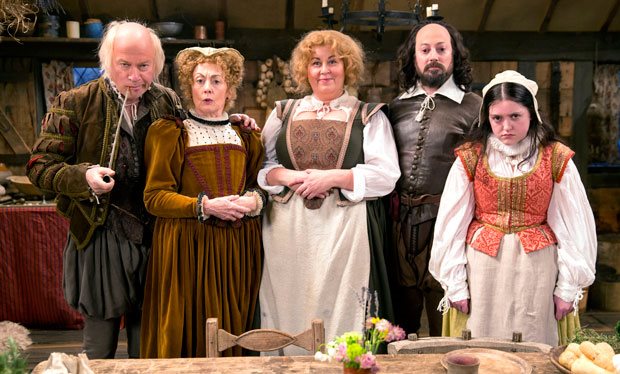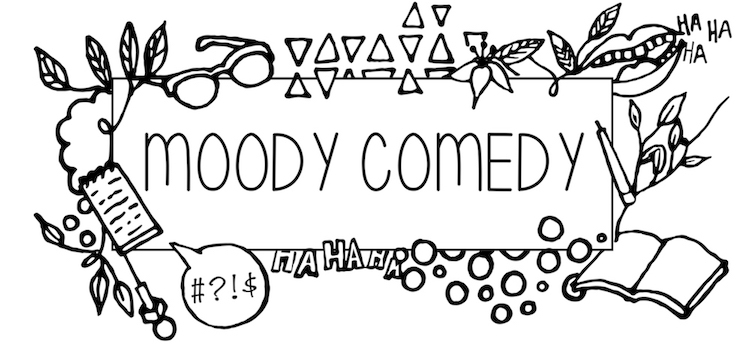Written by Ben Elton (of The Young Ones and Blackadder fame), Upstart Crow is a BBC Two sitcom about the life and works of William Shakespeare, as part of the channel’s commemoration of the Bard’s 400th birthday. The cast is diverse and exciting, ranging from television-screen veterans David Mitchell, Liza Tarbuck and Harry Enfield, to stand up comedians Rob Rouse, Gemma Whelan and Spencer Jones, topped off with Helen Monks (Raised By Wolves), Mark Heap (Friday Night Dinner, Green Wing) and Dominic Coleman (Miranda). From the outset, viewers feel as though they can trust this cast.
David Mitchell’s portrayal of Shakespeare is a refreshing role change for the comedian. He plays a disrespected and under-appreciated playwright, whose work is openly criticised as being confusing, superfluous and grandiose (the bard himself having being famously labelled by the dramatist Robert Greene as an “upstart crow”, in effect, a boastful scavenger).

© BBC
Many of the moments of laughter in Upstart Crow come from miscommunication, with Mitchell’s depiction of Shakespeare having an extra hurdle to negotiate as no other characters seem to be able to make head nor tale of his rhetoric. For those of us having briefly studied the playwright at school, we are frequently permitted the smug satisfaction of being able to appreciate a reference; something we were no doubt unable to do whilst actually studying. In this way, Shakespeare’s works are made accessible for an audience of all ages, humorously slammed by less-appreciative characters almost before Will has managed to utter beginnings of a metaphor.
The satirical misogyny is in abundance, highlighting the ridiculous nature of inequality spanning way back to the 16th century. Rob Rouse’s character, Shakespeare’s servant Bottom, is particularly moronic in his sexism (along with Kit Marlowe, played by Tim Downie; “A clever girl’s an ugly girl, Kate,”); stupid in such a way that is almost refreshing, as for once the female character is sympathised with by a modern audience. Predictable in places, perhaps, but the ridiculous nature of some of these plot lines is arguably in the same vein as of the bard’s own greatest comedies. It may be a push to label Upstart Crow an informative piece of television, but it certainly encourages further research. The life and works of Shakespeare are fondly ridiculed, with the satire skirting lightly on the border of cynicism. Here we have a modern twist on a widely-known historical figure that encourages a greater understanding of the wider context of Shakespearean Britain, and is already set to return for a second series.
